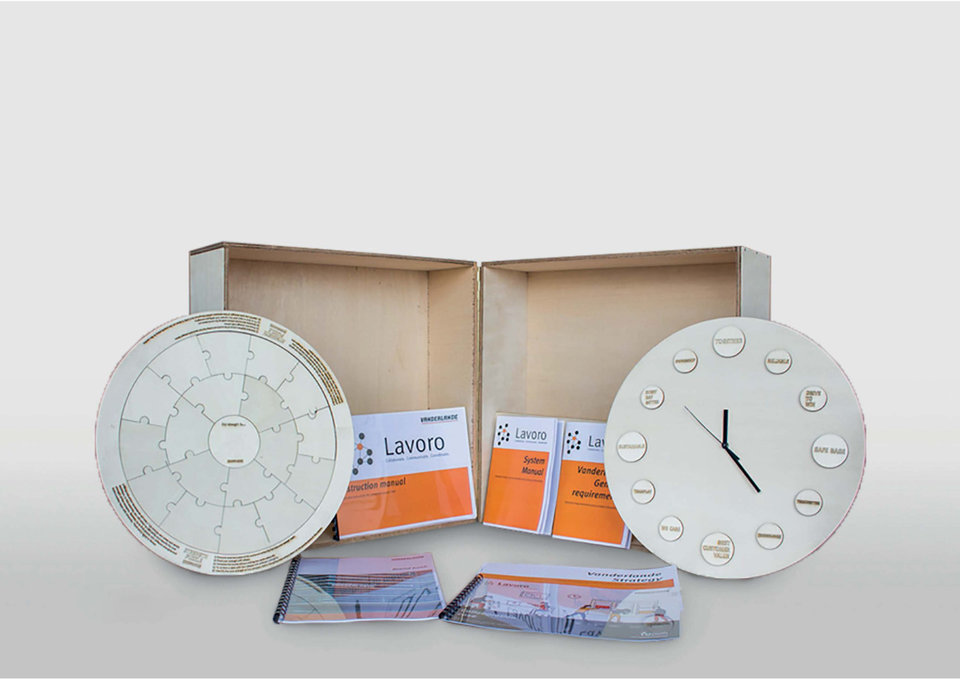This is not just a lamp shade. It is a representation of the material that it is made of: a 3D printable material that fits the circular economy. 3D printing is a promising manufacturing process to produce regenerative products for the circular economy. Common material input for existing 3D printers, however, is not yet sustainable. Therefore, we developed a material that is fully recyclable and can be obtained locally.
This shade is made with extrusion 3D printing from a paste based on calcium carbonate and sugar-water. In this case, ground mussel shells were used as the source of calcium carbonate. The positive impact of local manufacturing is maximised if the material used for printing is obtained from a local source as well. The province of Zeeland produces an annual waste stream of 20 million kg of mussel shells of which the majority ends up as residual waste.
Graduation project
Student
Joost Vette
Coaches
Mariet Sauerwein
Zjenja Doubrovski
The lamp shade is developed for a 'lighting lease system' that supports the initiative in this province to develop circular tourist residences. It is part of a system in which the manufacturer remains responsible for the performance of the lamp (i.e. illuminating a room). The shade is produced in Zeeland with a locally obtained material and can therefore also be repaired and recycled in this region. This increases the speed of repair and allows changes in the design to be made on demand. It is expected that this will contribute to a more dynamic and sustainable tourist sector.
The lamp shade is the outcome of the graduation project of Joost Vette and is part of the PhD research of Mariet Sauerwein in collaboration with Zjenja Doubrovski. It is the outcome of a project in which we developed an approach to support the development of 3D printable materials for a circular economy.



